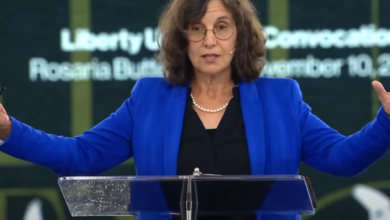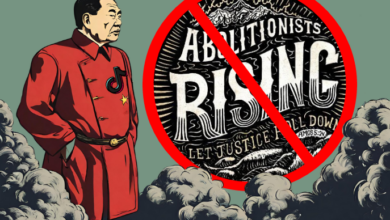ERLC Calls Race a “Gospel Issue”…in 2023
"Wokeness" Still has a Powerful Hold on the Minds of Many Evangelicals

This week, the Southern Baptist Convention’s Ethics and Religious Liberty Commission released an article declaring that racial conversations and quotas are a “gospel issue.” The article was based on an interview with Ramny Perez, pastor of Fordham Community Church in New York City. In the interview, Perez spoke about the need for racial unity in the church:

“I believe that some have checked out of this conversation, in part, because of the callousness of heart that has set in. Others, particularly minorities, are just tired of trying to convince their fellow Christians that these are gospel issues. Personally, for our church, we want to build on what we see is biblically good and faithful and not concern ourselves with debating those who are uninterested in racial unity.”
In the opening, Perez criticizes those who have “checked out of this conversation” due to a perceived “callousness of heart” and lack of interest in racial unity. Perez does not bother to explain what he means by “racial unity,” what the substance of a conversation on that topic would entail, nor why those who may not want to engage in that type of conversation are coldhearted. These are serious accusations to level at Christ’s church, but the interviewer did not give any follow-up questions that would force Perez to give evidence for his charges.
Perez also makes the claim that racial unity is a “gospel issue.” Contrast that idea with 1 Corinthians 15:3–6, in which the apostle Paul defines the gospel as the death, burial, and resurrection of our Lord Jesus Christ. The concept of race or unity is not the gospel and is thus not a gospel issue. While it is true that ethnic unity is a consequence of the shared identity, shared family, the new “ethnos” in Christ, Christians from different backgrounds enjoy, pastors like Perez come close to creating a different gospel when they make skin color a central focus and associate race with the gospel.
However, Perez does give some clarity to his definition of racial unity later in the interview when he asserts: “Our church, by God’s grace, has been able to reach and be composed of the diversity in our neighborhood. This has led us to focus on the proclamation of the gospel and the Word of God in a way that is not colorblind.” For Perez, “racial unity” entails having a certain amount of racial diversity in a congregation, and not being “colorblind” when proclaiming the gospel. This strategy aligns with the ERLC’s prior calls for “kingdom diversity,” which amounts to artificially making local churches more diverse. This strategy cannot be found in the Bible. When the apostle Paul was converted to Christ, he went to Judea, Galilee, and Samaria, preaching repentance and the forgiveness of sins to all, and that is how the church was and is built up (Acts 9). It is done through preaching the good news of Christ, not by catering to different shades of melanin.




